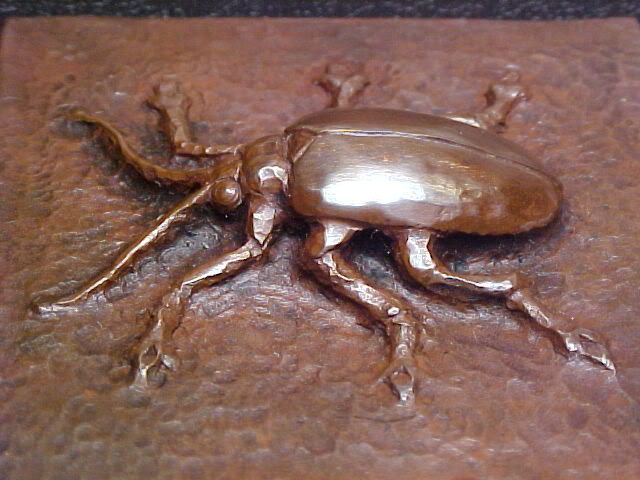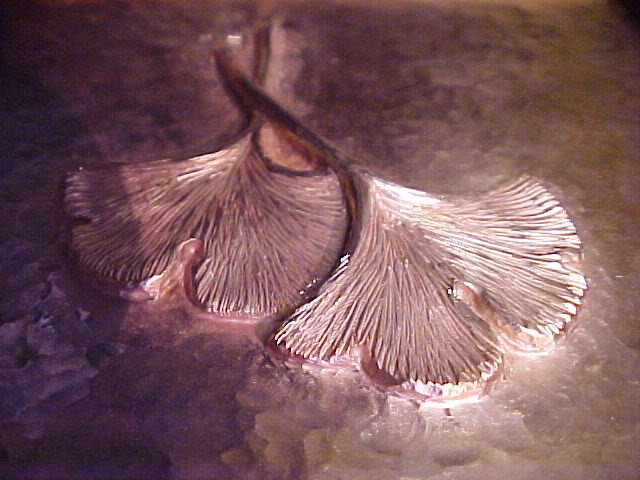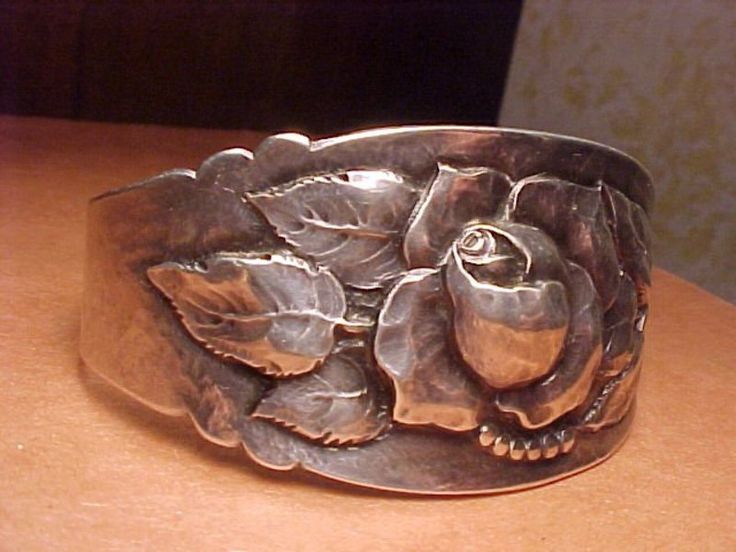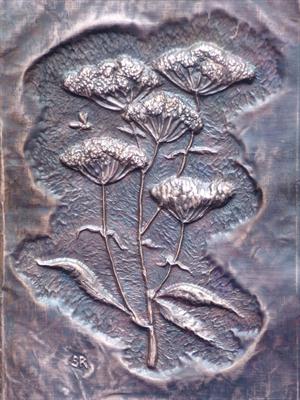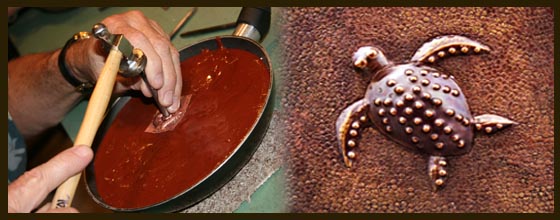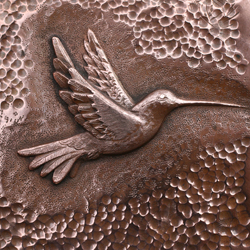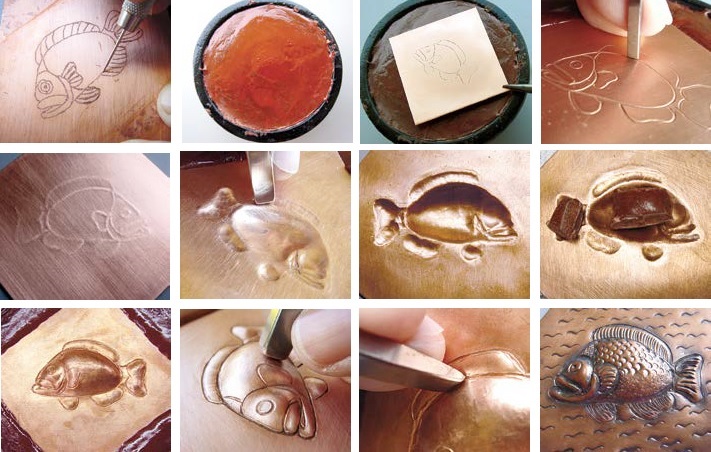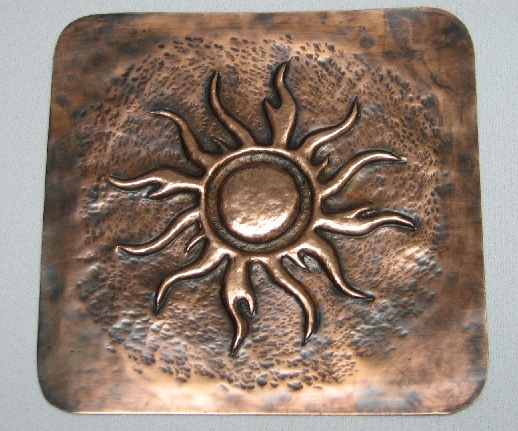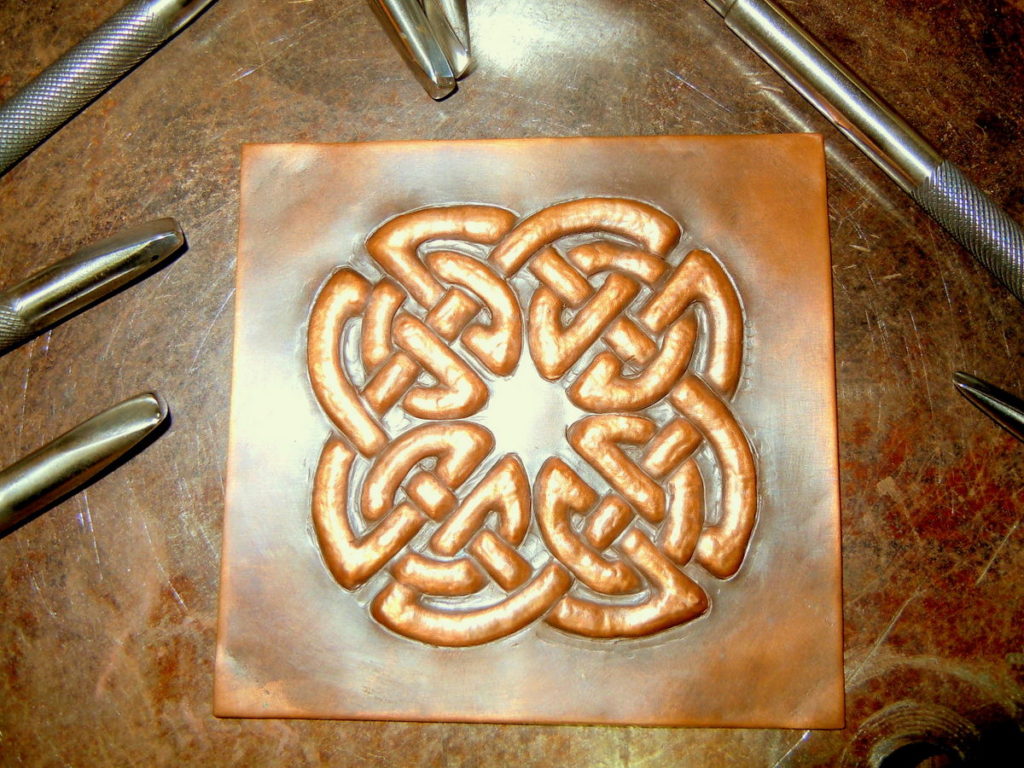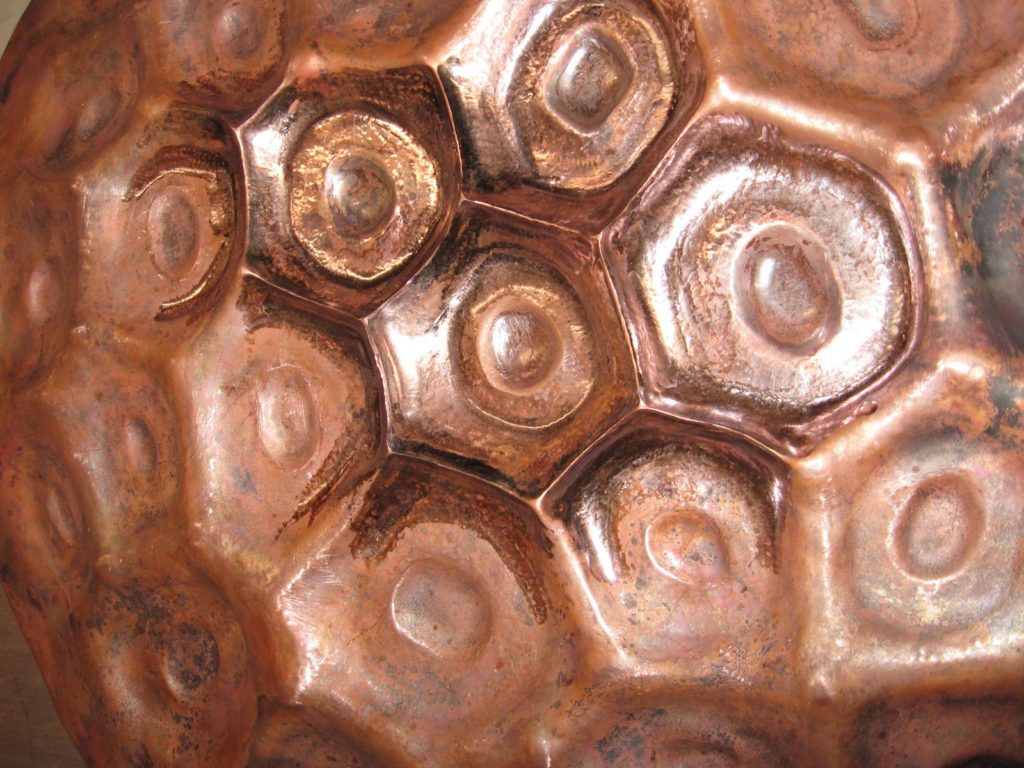Repoussé or repoussage (French pronunciation: [ʁəpuse] ( listen); [ʁəpusaʒ] ( listen) respectively) is a metalworking technique in which a malleable metal is ornamented or shaped by hammering from the reverse side to create a design in low relief. It is a form of toreutics.
There are few techniques that offer such diversity of expression while still being relatively economical. Chasing is the opposite of repoussé, and the two are used in conjunction to create a finished piece. It is also known as embossing.
While repoussé is used to work on the reverse of the metal to form a raised design on the front, chasing is used to refine the design on the front of the work by sinking the metal. The term chasing is derived from the noun “chase”, which refers to a groove, furrow, channel, or indentation. The adjectival form is “chased work”.
Repoussé or repoussage (French pronunciation: [ʁəpuse] ( listen); [ʁəpusaʒ] ( listen) respectively) is a metalworking technique in which a malleable metal is ornamented or shaped by hammering from the reverse side to create a design in low relief. It is a form of toreutics.
There are few techniques that offer such diversity of expression while still being relatively economical. Chasing is the opposite of repoussé, and the two are used in conjunction to create a finished piece. It is also known as embossing.
While repoussé is used to work on the reverse of the metal to form a raised design on the front, chasing is used to refine the design on the front of the work by sinking the metal. The term chasing is derived from the noun “chase”, which refers to a groove, furrow, channel, or indentation. The adjectival form is “chased work”.
